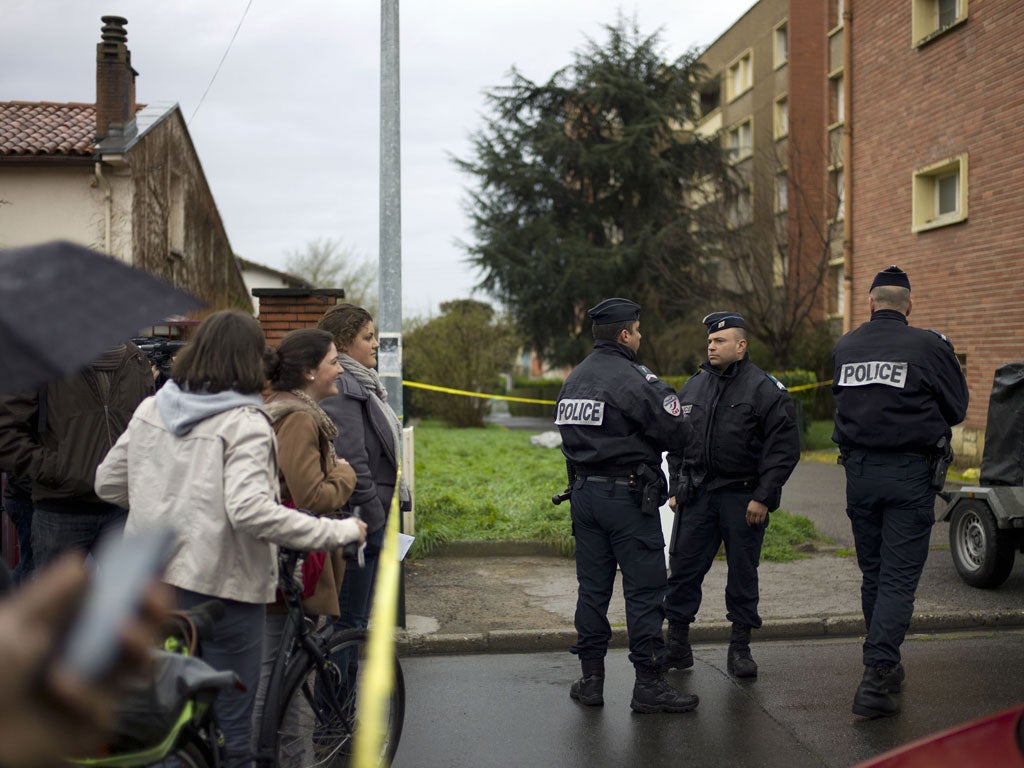How a 'polite and courteous boy' became counter-terror officers' worst nightmare
Merah's friends astonished by radicalisation of 'nice guy who got on with everyone'

Revellers who saw Mohamed Merah in an Arab nightclub in Toulouse just three weeks ago did not suspect it, nor did the friends who thought he was a "nice guy" who "got on well with everyone". Yet, in his final moments, Merah proved himself to be every inch the "lone wolf" that French counter-terrorism officers had long feared.
Early in the 32-hour siege, crisis negotiators had tried over the telephone to coax him into surrendering. But as night fell on Wednesday, all kinds of other tactics – most notably sleep deprivation – came into play, as police realised Merah was not ready to give himself up, despite having twice promised to do so.
First, street lights outside the block of flats were turned off. Then power and gas supplies to the building were cut, leaving police to monitor Merah through night-vision goggles while "counting on his great fatigue and weakening", according to Didier Martinez, of the SGP police union.
Officers carried out three controlled explosions at midnight, destroying the main door, punching a hole in the wall and blowing the shutters off the windows. After that, shots were fired at hourly intervals through the night, with the aim of intimidating and exhausting the fugitive holed up inside.
Police were reported to have tried pumping knockout gas into the flat, but an ex-member of the elite "Raid" squad cast doubt on this technique. "For that, you need a totally confined space without any ventilation," he told Le Figaro newspaper. "If a door opens or a window is half-open, the stuff does not work."
Having used robot cameras to peek into the apartment and check for boobytraps, the special forces burst in, leading Merah to launch what prosecutor Francois Molins described as "an assault, charging police through the apartment and firing at them with a Colt .45, continuing to advance, armed and firing, as he jumps". After leaping from the window, it is believed Merah was shot in the head by a marksman.
To the killer's former lawyer, it was no surprise that he chose to die in a blaze of gunfire. "He wants to show he is exceptional, omnipotent, and this approach can only end up as something tragic," Christian Etelin had predicted during the standoff.
Yet, as contrasting pictures emerged of the terrorist, even Mr Etelin noted that Merah was a "polite and courteous boy" when he first met him in 2004. One friend characterised Merah, a former mechanic, as a man who liked "cars, bikes, girls and sports". Another acquaintance who played football with Merah said he was "respectful and generous".
Mehdi Nedder, who saw Merah on a recent night out, could not understand what had happened to a "normal young man". "Three weeks ago he was in at a nightclub," Mr Nedder told the Associated Press. "And this morning I hear we're talking about al-Qa'ida. How can you change like that in three weeks?"
Though it surprised those who thought they knew him, Merah had been radicalised two years ago, becoming a self-taught, Salafi Muslim extremist. Mr Etelin said he believed Merah's two-year prison term for a mugging could have "provoked hate for the justice system" and "laid the groundwork from which he threw himself into this religious fanaticism".
Merah was released from jail in September 2009, then twice travelled to Pakistan. He crossed the border into Afghanistan, where he was picked up by police in Kandahar – a province with strong ties to the Taliban – handed to US forces and deported back to France.
His motives became clear during the siege negotiations, in which he admitted his crimes and professed pride at what he had done. Indeed, Merah's single-mindedness and the cold, clinical efficiency with which he carried out the killings, leaving no fingerprints or DNA evidence at his crime scenes, led the Interior Minister, Claude Guéant, to warn: "Lone wolves are formidable adversaries."
Join our commenting forum
Join thought-provoking conversations, follow other Independent readers and see their replies
Comments
Bookmark popover
Removed from bookmarks